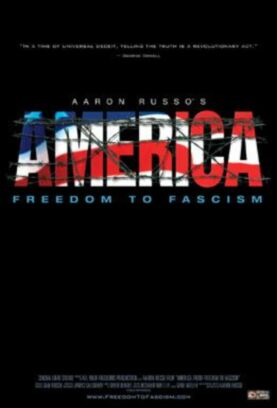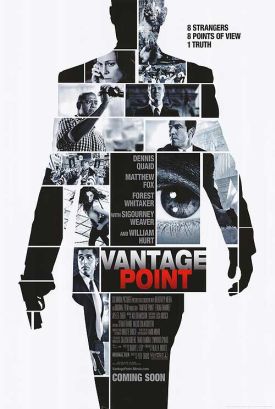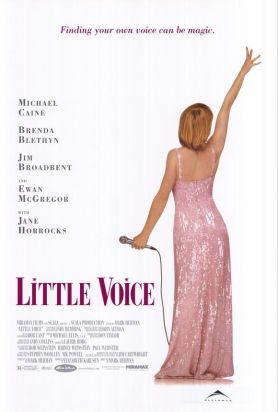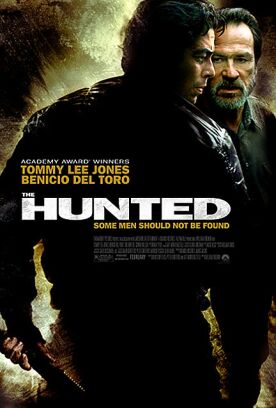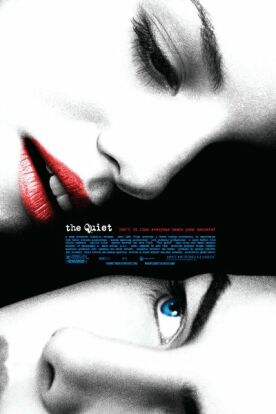America: From Freedom to Fascism
As I may have had occasion to mention before, movies go as naturally together with paranoia as they do with voyeurism. Possibly with other mental disorders as well, but we can confine ourselves to these two for the moment. Sufferers from both imagine that they see things most people do not see, and the thrill of that exclusive view is what makes it so compelling. The moving picture camera flatters that sense of exclusivity. Everything that it shows us, it has sought out and separated from the torrent of visual experience available to it, a tiny nugget of presumed significance amidst the booming, buzzing confusion. Every movie’s unspoken assumption is the same as the paranoiac’s, namely its view of the world is something new, exciting and more or less invisible to everyone else up to now.
At any rate, some such idea has been indispensable to recent history of documentary film-making. With each new documentary, it seems, there’s at least one conspiracy theory, new or old, to be added to the ever-growing pile. And the latest, Aaron Russo’s America: From Freedom to Fascism, shows us that the conspiracies can be right-wing as well as left. In fact, in Mr Russo’s film right and left are often indistinguishable. Starting out from the venerable right-wing theory that the income tax and the Federal Reserve are gigantic frauds perpetrated on the American people by the IRS and the banks, it falls into the familiar trap of conspiracy-overload which also afflicts such left wing docs as Eugene Jarecki’s Why We Fight. Like Mr Jarecki, Mr Russo seems to think that throwing in ten or a dozen extra fantastical conspiracies will act as a further confirmation of the main one.
But anyone not already committed to the paranoiac’s view of the world will find the movie’s case diminished by each successive theory, rather than enhanced. By the time Mr Russo’s movie gets to David Rockefeller and the Council on Foreign Relations, voting fraud in Ohio in 2004, and the little microchip that the Federal government means to implant in each of us, the craziness factor is so great you’d almost have to be crazy yourself to believe a word of it. Not that, even if the film had managed to stick to the conspiracies of the IRS and the Fed, it would be any more believable. The title says all you need to know, since America’s purported descent into “fascism” — though a familiar trope on the left, where anything not quite echt socialist-pacifist-libertarian is routinely called “fascist” — suggests a level of rhetorical unrestraint that the picture itself tends to bear out.
We see Mr Russo himself, a producer of The Rose and Trading Places who for the last decade or so has been busying himself with libertarian politics, browbeating Sheldon Cohen, a former IRS commissioner, and others to cite the legal basis for the income tax until they are forced to acknowledge that it pretty much boils down to judicial precedent. So then, says one of his tax-resisting heroes, the author Irwin Schiff, “Nobody can know what the law is, because the law is what the judges say the law is.”
Well, duh! Like so many of those who are self-taught, whether in religion or in politics, Messrs Schiff and Russo believe implicitly in self-interpreting scriptures. All they want is that there should be no intermediary, no one entitled to such a position by knowledge, experience or authority, who stands between them and the plain sense of the law. And if such people exist, in the form of judges appointed by the state, the fact is itself prima facie evidence of a conspiracy by the state to deny him his God-given rights to decide for himself what the law means. This belief, ultimately derived from Protestant fundamentalism, has had a long history in America and is periodically revived by those who seek to get back to American basics. But now it can also merge with the Marxist-Leninist view that all authority is mere power-lust in disguise.
Thus one of Mr Russo’s interview subjects says that “the guy with the badge and the gun, who can take you off to jail — that’s the law.”To him, this is not even a controversial statement. Nor is saying that “most politicians will sell their soul for a dollar” or that the income tax is “the instrument of totalitarianism” or that “Americanism is now like Naziism, Communism, Fascism.” Can you tell that this, like most of the documentaries produced these days, is intended for an audience already predisposed to believe in the conspiracies of the powerful against them? In this super-heated rhetorical atmosphere, where wild and scurrilous charges have become commonplace, you’ve got to be even more wild and scurrilous to produce any effect at all. There, far out on the margins of the normal political dialogue, left and right begin to merge. Though Mr Russo believes with the far right that gold is the only real money, he also believes with the far left in the evils of globalization, throwing up his hands in horror at the fact that, as he claims, of the 190 countries in the world, the US has military bases in 130 of them. Some of us, if we are Americans, might ask: isn’t that a good thing? Doesn’t it mean that we’re in a better position to shape the world according America’s interests? Doesn’t being an American mean that you would want to project America’s power around the world?
But being an American also seems to mean that you are ready to believe at the drop of a hat that America — or at least the wicked cabal which has seized the reins of American power — is intent on enslaving not only its own citizens but the whole world. Such a belief may be crazy but, because it appeals to the natural paranoia of the American movie audience, it is also better box office than political sanity and restraint.
Discover more from James Bowman
Subscribe to get the latest posts to your email.

